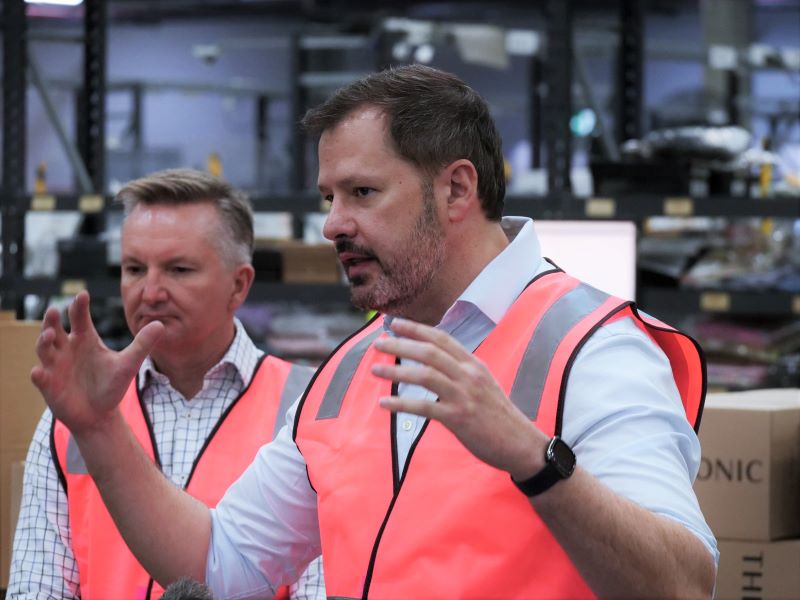Just days out from the federal election, Labor’s Ed Husic has opened up about the structural frameworks that will guide the work of the proposed National Reconstruction Fund in supporting advanced manufacturing, critical technologies like AI and quantum, and medical manufacturing.
The Shadow Minister for Industry and Innovation has also detailed for the first time Labor’s plans to continue support for the Industry Growth Centres program, as well as policies for ensuring local industry has access to the workforce skills they need, through a mix of education and training, and skilled migration.
In this interview with the Commercial Disco podcast, Mr Husic said geopolitics is framing industrial policy across the world in a way that it has not happened for decades.
The creation of the National Reconstruction Fund (NRF) and the targeted industry funds within the NRF, as well as initiatives like setting up an Office of Made in Australia within the Finance portfolio, is a direct response to those geopolitical forces.
Debates about fracturing supply chains and the urgent need to build sovereign capability across key sectors has become mainstream, moving the Industry portfolio closer to the centre of the national policy agenda.
Labor ran almost silent on industry policy across the first four weeks of the campaign. In the past week, however, there have been a series of big-ticket announcements: a $1 billion Critical Technologies Fund, $1 billion Advanced Manufacturing Fund, and a $1.5 billion Medical Manufacturing Fund.
Each of these funds will be structured and managed within the $15 billion National Reconstruction Fund and will make investments through loans, equity and guarantees.
“Geopolitics is shaping industry policy in a way that it really hasn’t done for decades. What we have tried to do is to respond to that,” Mr Husic said.
“That’s why we put the National Reconstruction Fund up. That’s why we put up the Buy Australian plan to focus on reforming government procurement … and we have looked at opening up opportunities particularly for younger Australians through the startup year initiative.
“This is all designed to mobilise and replenish and rebuild capability in this country, particularly that necessary capability of manufacturing.”

It will surprise no-one that at the tail-end of a tightly-fought election Mr Husic offered a withering assessment of the Coalition’s funding initiatives.
While Labor had largely been supportive of the government’s $1.5 billion Modern Manufacturing Initiative when it was announced in October 2020, everything has been “late, late, late” with the bulk of the MMI funding only allocated on the eve of the national poll, he said.
“When did they apply it? Not to get the economy back on its feet, but to get themselves back into office,” he said.
“They just took so long, and this stuff just doesn’t turn on a dime. It’s their execution that’s been found wanting.
“I am one of the most impatient people in the Opposition, and I’m also one of the most stubborn. If I was in that position, I would have been pushing that stuff to happen way quicker, because there was an imperative – an industrial and a national imperative to make it happen.”
The way that Labor had targeted substantial funds within the NRF was based on broad consultation with industry, as well as looking at successful structures in comparable countries around the world. The sub-funds targeting sectors, technologies and capabilities had been created to send a signal about where the national priorities have been set.
The operating model for the NRF is the Clean Energy Finance Corporation set up under the previous Rudd/Gillard government.
“It’s got an independent board, made up of smart people who will make the calls on investments,” Mr Husic said.
“We will not have a plethora of colour-coded spreadsheets where decision-making is driven by political imperatives as opposed to what will work. The policies and procedures will be set by an independent board.”
Do you know more? Contact James Riley via Email.

